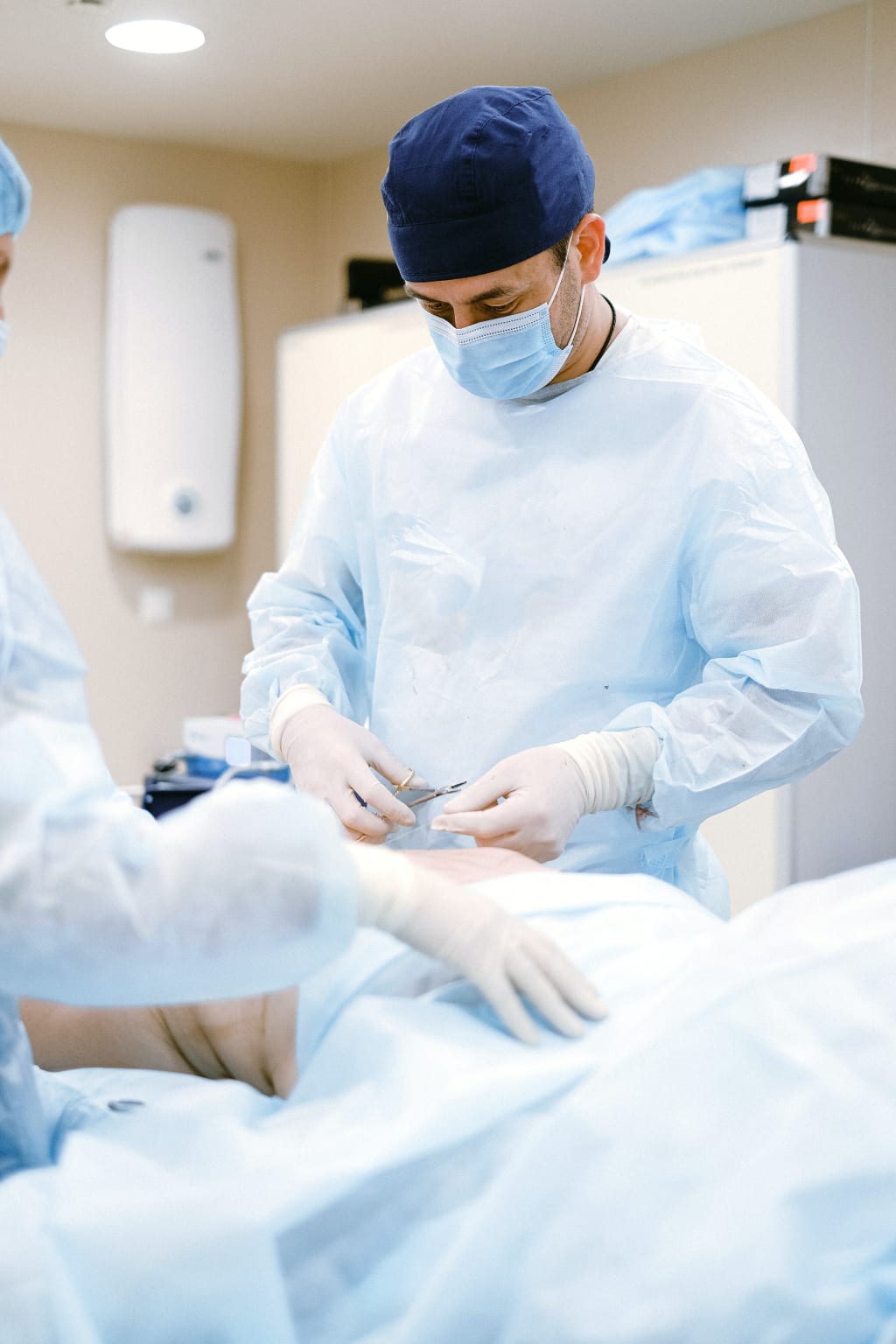Making An Informed Decision: Understand The Different Types Of Weight Loss Surgery
weight loss

Are you sick of fighting with your weight and ready to try something different? If so, you might be thinking about surgery to help you lose weight. But there are so many kinds of treatments, how do you know which one is best for you? In this guide, we’ll talk about the different kinds of weight loss surgery and help you learn more about each one and its possible benefits. From gastric bypass to sleeve gastrectomy, we will talk about the different operations, their risks and benefits, and the results you can expect. Armed with this information, you can choose the type of weight loss surgery that fits your goals, lifestyle, and health background the best. So, let’s dive in and find out which way to a healthier, happy you is right for you.
Common Types of Weight Loss Surgery
When it comes to surgery to help people lose weight, there are a few popular procedures that are done often. Some of these are gastric bypass surgery, gastric sleeve surgery, laparoscopic adjustable gastric bands, and biliopancreatic diversion with a duodenal switch. Each of these processes has its own pros and cons, so it is important to know what makes them different before making a choice.
Gastric Bypass Surgery
Roux-en-Y gastric bypass surgery, which is also called gastric bypass surgery, is one of the most popular ways to lose weight. In this procedure, a small pouch is made at the top of the stomach and connected directly to the small intestine. A big part of the stomach and the first part of the small intestine is then skipped over. This makes it hard to eat a lot of food and makes it harder for calories and nutrients to get into your body.
Gastric bypass surgery has been shown to help people lose a lot of weight that stays off. Patients can expect to lose between 60 and 80% of their extra weight in the first year after surgery. This process is also linked to improvements in health problems caused by obesity, like type 2 diabetes, high blood pressure, and sleep apnea. But it’s important to know that gastric bypass surgery is permanent and may require food and lifestyle changes for the rest of your life to keep the weight off.
Gastric Sleeve Surgery
In gastric sleeve surgery, also called sleeve gastrectomy, a big part of the stomach is removed, leaving only a small, banana-shaped sleeve. This process works by making the stomach smaller and limiting how much food can be eaten. When a part of the stomach is taken out, hormones change, which can help control hunger and make it easier to lose weight.
Gastric sleeve surgery is one of the most popular ways to lose weight right now because it works well and has fewer risks than other treatments. It has been shown to help people lose a lot of weight, with most people losing 50–70% of their extra weight in the first year. This process is also linked to improvements in health problems like type 2 diabetes and high blood pressure that are linked to being overweight. But it’s important to know that gastric sleeve surgery is permanent and may require changes to your food and way of life for the rest of your life if you want to keep the weight off.
Laparoscopic Adjustable Gastric Banding
Laparoscopic adjustable gastric banding, also called gastric band surgery or just “gastric banding,” involves putting an inflatable rubber band around the top of the stomach to make a small pouch. The amount of food that can be eaten can be controlled by adding or taking away saline solution from the band. This hardens or loosens the band.
Gastric banding is a less invasive surgery than gastric bypass or gastric sleeve surgery because the stomach is not cut or stapled and the intestines are not rerouted. But compared to other treatments, it usually leads to less weight loss. Patients usually lose between 40 and 50% of their extra body weight in the first year. Also, gastric banding needs regular follow-up visits so that the band can be adjusted. There may also be a higher risk of problems, such as the band slipping or wearing away.
Biliopancreatic Diversion with Duodenal Switch
Biliopancreatic diversion with duodenal switch (BPD/DS) is a less common weight loss surgery that uses both restricting and malabsorptive techniques. It is similar to gastric sleeve surgery in that a large part of the stomach is removed and a large part of the small intestine is rerouted to stop calories and nutrients from being absorbed.
BPD/DS is usually only used for people with a high body mass index (BMI) and health problems caused by obesity that hasn’t improved with other weight loss methods. This process has been shown to help people lose a lot of weight, with most people losing 70–80% of their extra weight in the first year. But BPD/DS is linked to a higher chance of nutritional deficiencies because it makes it harder to absorb nutrients. Vitamin and mineral supplements are needed for life.

Comparison of Different Types of Weight Loss Surgery
Now that we’ve talked about the different kinds of weight loss surgery, let’s compare them based on things like how much weight they help you lose, how likely they are to cause problems, and what changes you have to make in your life.
Weight Loss Outcomes
Most of the time, gastric bypass surgery and gastric sleeve surgery are the most effective ways to lose weight. Most people who have these treatments can expect to lose between 60 and 80% of their extra weight in the first year. Most people who get a gastric band lose about 40–50% of their extra body weight in the first year. On the other hand, BPD/DS has been shown to cause the most weight loss, with patients losing 70–80% of their extra body weight in the first year.
Risks and Complications
All surgeries to lose weight have some level of risk, but the exact risks and problems depend on the operation. Compared to other weight loss treatments, gastric bypass surgery, and gastric sleeve surgery are thought to have a low risk. But they can cause problems like infection, bleeding, blood clots, and leaks at the site of surgery. When you get a gastric band, you are more likely to have problems like the band slipping, eroding, or getting an infection. Due to malabsorption, people with BPD/DS are more likely to have vitamin and mineral deficiencies, so they need to take supplements for the rest of their lives.
Lifestyle Changes
To lose weight and keep it off, you have to make big changes to your lifestyle after any weight loss surgery. Patients usually have to follow a strict diet and exercise plan after surgery and go to regular follow-up visits. Also, weight loss surgery can have a big effect on how your body breaks down food, so you may need to avoid or limit certain foods. You should be ready for these changes and have a support system in place to help you get through life after surgery.
Factors to Consider When Choosing Weight Loss Surgery
When deciding on weight loss surgery, there are a few things to think about to make sure you make the best choice for your wants and situation.
Weight Loss Goals
Your weight loss goals are one of the most important things to think about. Different weight loss surgeries help people lose weight in different ways, so it’s important to set realistic goals and choose a treatment that fits with them. If you have a lot of weight to lose or health problems caused by your weight that hasn’t gotten better with other treatments, you may need a more aggressive surgery like gastric bypass or BPD/DS. Gastric sleeve surgery or gastric banding may be better for you if you have a lower BMI or want a less invasive choice.
Health Conditions
When picking weight loss surgery, you should also think about how your health is right now. Conditions like type 2 diabetes, high blood pressure, and sleep apnea that are linked to obesity have been shown to get better with certain treatments, like gastric bypass and BPD/DS. If you have one or more of these problems, a treatment that might help in one or more of these ways could be helpful. Talk to your doctor to find out which treatment is best for your health.
Lifestyle and Dietary Preferences
When picking weight loss surgery, you should also think about how you live and what you like to eat. Some surgeries, like a gastric bypass or BPD/DS, require you to make more changes to your diet and may have a bigger effect on how your body uses food. If you don’t want to or can’t make these changes, you may be better off with a treatment that gives you more freedom, like gastric sleeve surgery or gastric banding.
Surgical Risks and Complications
It is important to know the risks and possible problems that come with each way to lose weight. Even though all surgeries have some level of risk, some may have a higher chance of certain problems. It is important to talk to your surgeon about these risks and compare them to the possible benefits of each operation.
Risks and Complications of Weight Loss Surgery
As with any surgery, weight loss surgery comes with some risks and possible problems. Before you decide, you should be aware of these risks and talk to your surgeon about them.
General Risks
General risks of weight loss surgery include infection, bleeding, blood clots, a bad response to the anesthesia, and leaks at the surgical site. Even though these risks aren’t very high, it’s important to know about them and talk to your expert about them.
Specific Risks by Procedure
Each method of losing weight also has its own risks and possible problems. Compared to other weight loss treatments, gastric bypass surgery and gastric sleeve surgery are thought to have a low risk. But they can cause problems like infection, bleeding, blood clots, and leaks at the site of surgery. When you get a gastric band, you are more likely to have problems like the band slipping, eroding, or getting an infection. Due to malabsorption, people with BPD/DS are more likely to have vitamin and mineral deficiencies, so they need to take supplements for the rest of their lives.
Long-Term Risks
It’s also important to think about the risks that come with weight loss treatment in the long run. Some of these risks include the chance that you will gain the weight back, that you will need more surgeries or treatments in the future, and that the changes to your digestive system caused by surgery could cause problems. It’s important to have realistic goals and know that weight loss surgery isn’t a magic bullet. Instead, it’s a tool that can help you lose weight and keep it off.
About the Creator
Abby blasius
I am a passionate content creator with a strong focus on health and wellness. While my educational background lies in a Bachelor of Accounting and Finance, it is my innate desire to help people feel good about themselves in mind, body&soul
Enjoyed the story? Support the Creator.
Subscribe for free to receive all their stories in your feed. You could also pledge your support or give them a one-off tip, letting them know you appreciate their work.






Comments
There are no comments for this story
Be the first to respond and start the conversation.